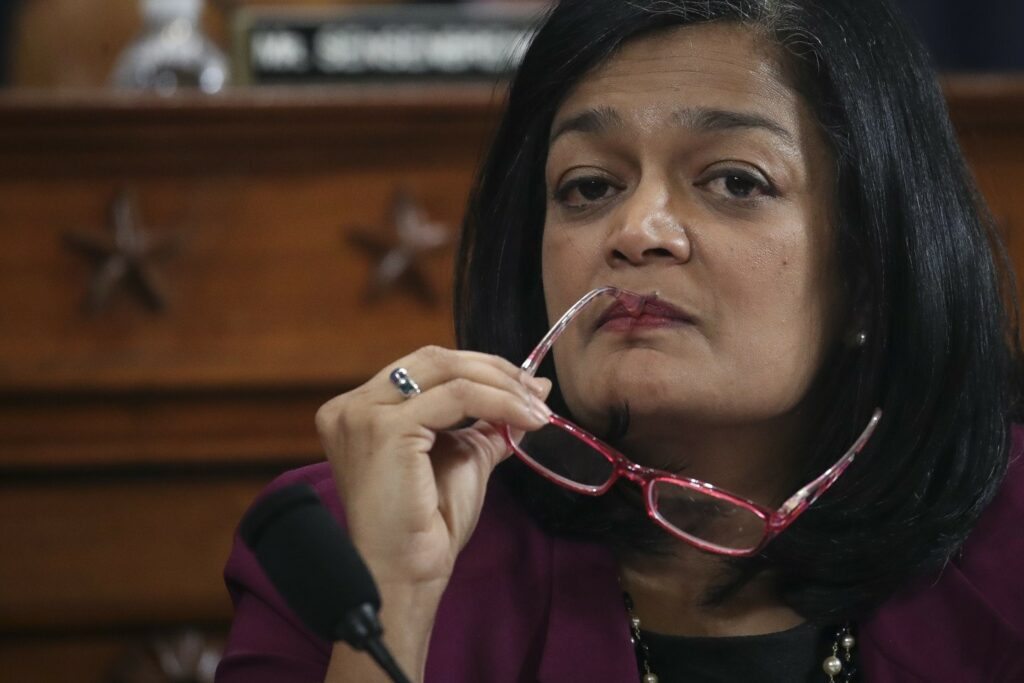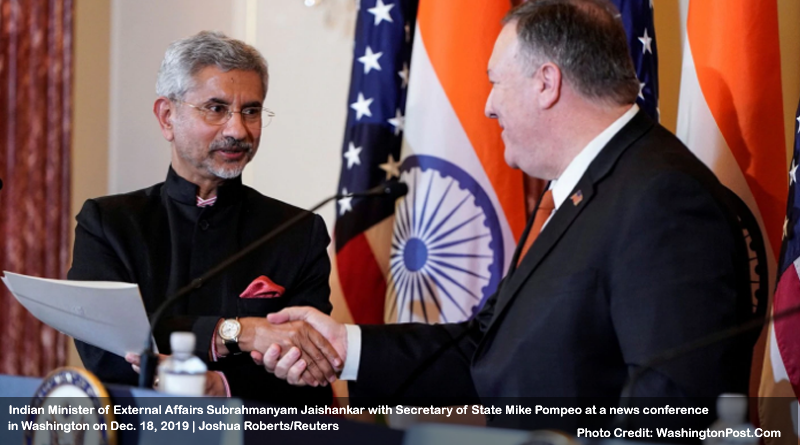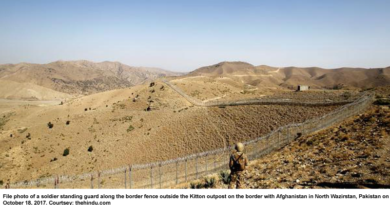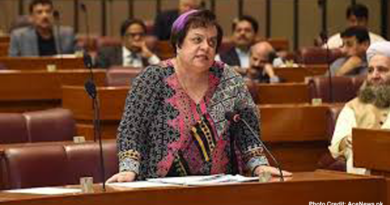Top Indian official abruptly cancels meeting with congressional leaders over Kashmir criticisms
India’s external affairs minister abruptly canceled a meeting with senior members of Congress this week after U.S. lawmakers refused demands to exclude a congresswoman who has criticized the Indian government’s policies in Kashmir, said congressional aides familiar with the matter.
The decision demonstrates India’s sensitivity over the Kashmir issue as Prime Minister Narendra Modi defends moving in troops, imposing curfews, and cutting off mobile phone and Internet access in India’s only majority-Muslim state.
During his visit to Washington this week, External Affairs Minister Subrahmanyam Jaishankar was to meet the chairman of the House Foreign Affairs Committee, Rep. Eliot L. Engel (D-N.Y.); the committee’s top Republican, Rep. Michael McCaul (Tex.); and others, including Rep. Pramila Jayapal (D-Wash.).
Indian officials informed the committee that Jaishankar would not meet with the lawmakers if the group included Jayapal, who is sponsoring a resolution urging India to lift communications restrictions, restore the Internet and preserve religious freedom. Engel refused, and the Indians pulled out, Jayapal told The Washington Post.

“This only furthers the idea that the Indian government isn’t willing to listen to any dissent at all,” she said. “The seriousness of this moment should’ve been a reason for a conversation, not dictating who’s in the meeting, which seems very petty.”
The Indian Embassy in Washington did not respond to a request for comment.
[India’s Internet shutdown in Kashmir is the longest ever in a democracy]
Tensions in Kashmir, which India and Pakistan have fought over for decades, spiked in the summer when Modi revoked a special status granting autonomy to the region.
The Indian government has said Kashmir is calm after revoking the area’s autonomous status. But video and eyewitness accounts show a different story. (Elyse Samuels/The Washington Post)
The Internet shutdown entered its 134th day on Monday, making it the longest shutdown of its kind imposed in a democracy, according to the Internet advocacy group Access Now.
Modi’s government has defended the restrictions on security grounds.
Jaishankar’s decision to cancel the meeting surprised analysts, who said it cuts against his reputation as a skilled statesman in times of turmoil.
“It’s a missed opportunity,” said Ashley Tellis, an India scholar at the Carnegie Endowment for International Peace. “Minister Jaishankar is incredibly thoughtful and articulate — and not engaging with Congress, which has traditionally been a bastion of strong support for India, is shortsighted.”
U.S. senator blocked from visiting Kashmir as crackdown enters third month
Jaishankar’s trip to Washington comes as protests have spread across India over the Citizenship Amendment Act, a law passed last week that prevents undocumented Muslims from neighboring countries from seeking Indian citizenship while permitting people of other faiths to do so.
Secretary of State Mike Pompeo, who met with Jaishankar on Wednesday, declined to weigh in on the citizenship law despite making the promotion of religious freedom a centerpiece of his tenure as the United States’ top diplomat.
“We care deeply and always will about protecting minorities, protecting religious rights everywhere,” Pompeo said at a news conference.
A senior State Department official declined to say whether the citizenship law came up during discussions involving Pompeo, Jaishankar and India’s defense minister.
At the same news conference, Jaishankar defended the citizenship law as a “measure which is designed to address the needs of religious minorities from certain countries.”
Jayapal says the citizenship law “adds a whole level of complexity to India as a secular democracy — one of the great prides of the country.”
She said she had planned to advance her resolution on Kashmir this week but was urged to wait until after meeting with Jaishankar. Now she plans to renew her push for the resolution in January.
“My constituents care about the human rights situation, thousands of peopled detained without charges, and a communication crackdown that makes daily life more difficult,” she said. “It has been extremely brutal for families in Kashmir.”



